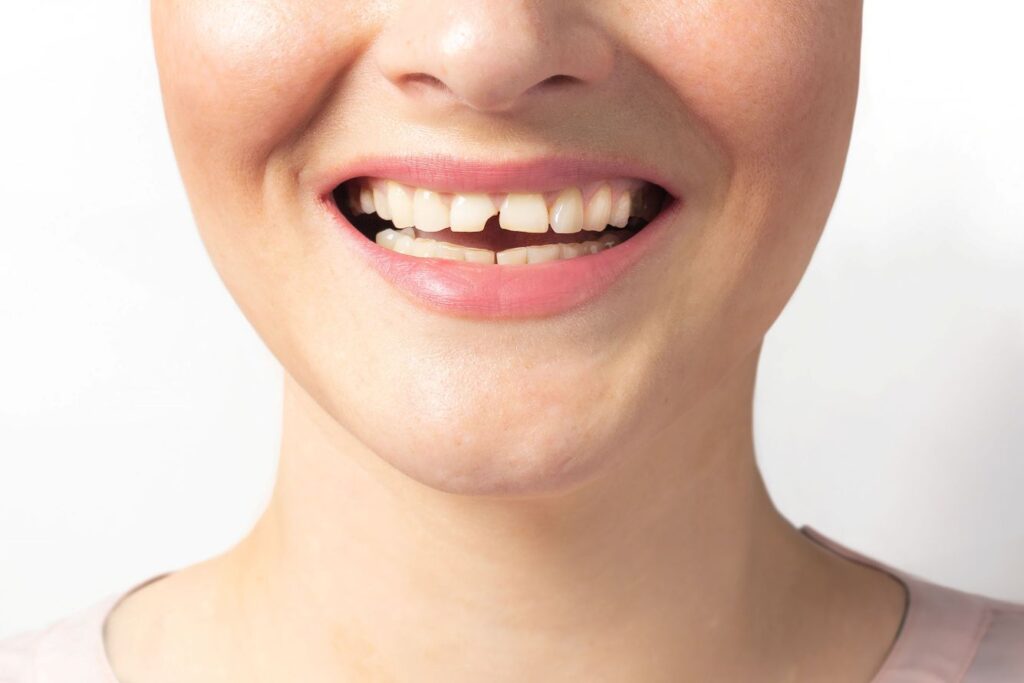
Did you know that proper preventive care can prevent potential dental emergencies? Brushing and flossing twice daily consistently removes plaque and bacteria that cause common oral problems, like cavities and gum disease.
Although cleaning your mouth regularly strengthens your enamel and connective tissues, there’s still no guarantee that you’ll never hurt your teeth. For instance, you might accidentally chip or crack one while biting into something too hard. You might think such minor injuries will resolve themselves, but that’s usually not the case with dental concerns. Continue reading to learn more about it!
Is My Chipped Tooth My Fault?
If you’ve just noticed that your tooth has sustained surface damage, it’s natural to worry about the cause. You might feel guilty for your current condition or wonder how to prevent a repeat occurrence. While it’s true that poor oral habits contribute to injuries, rest assured that even those who are dedicated to their regular hygiene regimen can still develop urgent issues.
For instance, it might be due to circumstances that are beyond your control, like subconsciously grinding your teeth at night. Certain prescription medications, medical concerns, and genetic disorders can also weaken the protective outer layer of your teeth, making chips more likely. After your dentist examines your mouth, they can recommend ways to avoid future dilemmas, like wearing a nightguard to cushion your upper and lower arches from the pressure of clenching.
Can Chipped Teeth Mend Themselves?
If you’ve ever broken a nail, it probably didn’t concern you overly much (unless it hurt) because you know that the material regrows relatively quickly. It’s natural to assume that damaged teeth will also similarly mend themselves, but unfortunately, dental issues tend to progressively worsen the longer they go unaddressed.
This is because your enamel doesn’t contain blood vessels or bone marrow to support growth and healing. The protective outer layer of your teeth is made from an incredibly hard mineral, calcium phosphate, which is the strongest substance your body creates. However, it’s not completely invincible, and it doesn’t regenerate. Therefore, if the structure of your tooth has been compromised, you should contact your dentist to determine the best path forward.
How Are Chipped Teeth Treated?
After your provider examines your mouth, they may want to take X-rays or other scans to look beneath the surface to determine the true extent of the harm done. Minor dings and hairline fractures can sometimes be repaired with dental bonding. More serious breaks might require a dental crown to safeguard the underlying tooth from additional damage while restoring its functionality and appearance. If your pearly white is too injured to be saved, they may have no recourse but to recommend extraction and replacement.
The longer you wait to visit your dentist to repair your tooth, the more likely you are to sustain additional breaks, decay, or infection. Contact your dentist as soon as possible so they can recommend an appropriate solution!
About the Author
Dr. Fred Fox has always been a forward-thinker, which is a skill he finds particularly helpful during treatment planning. If you’re frustrated with the stains tarnishing your smile, Dr. Fox won’t just consider your immediate needs, but also how he can help you feel satisfied with your teeth for years to come. To schedule your cosmetic dentistry consultation with Dr. Fox, contact his office at 904-595-9005.
